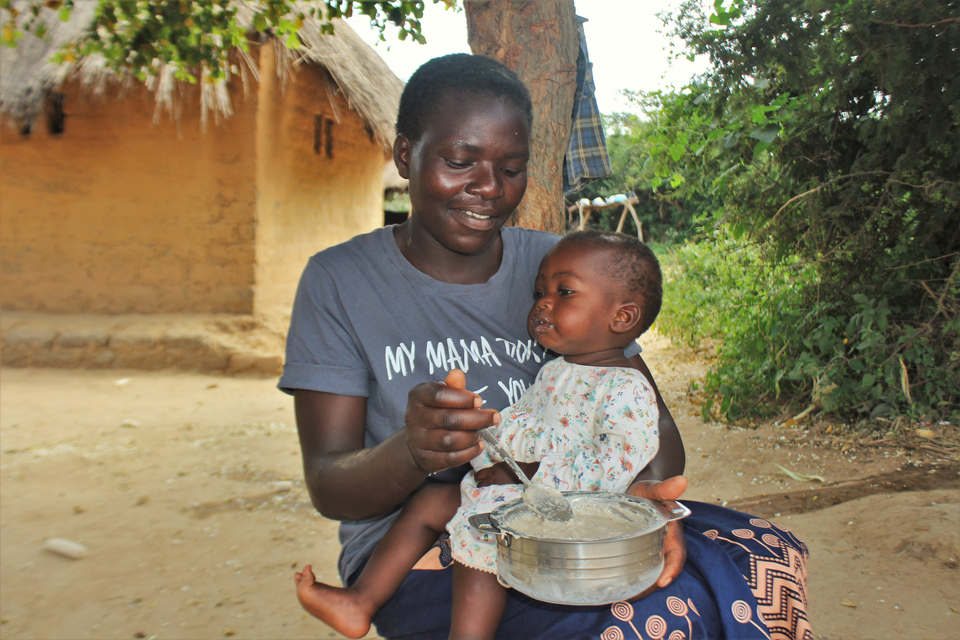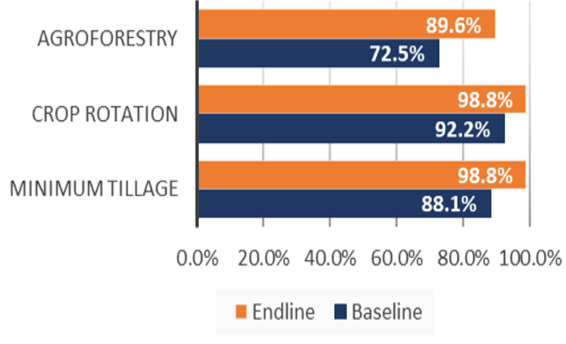DAPP Zambia implemented the Integrated Nutrition and Smallholder Farmer Support project aimed at reducing malnutrition, stunted growth and to increase food security as well as improve resilience against the effects of climate change between 2019 and 2022.

The project integrated agriculture and nutrition activities such as promoting diversified agriculture, access to viable and functional markets, managing of food waste, knowledge gaps as well as promotion of feeding practices and nutrition focusing on the first 1000 days of a child’s life.
It targeted beneficiaries in Katete, Nyimba, Petauke, Lundazi, Monze and Namwala Districts.
It worked with pregnant and lactating women, supporting children under two years, reaching adolescents with messages on health, nutrition and production of nutritious Foods.
The Project was implemented using the Farmers Club Concept with each farmers club having an average of 40 members representing 40 households. The farmers’ clubs were used as a platform for delivering services to the beneficiaries and each household was supported to take action on all lessons and practices that improved family wellbeing.
12,769 farmers were organized in 320 farmers’ clubs while 5,564 members were active in 292 saving groups.
Among farmers within the clubs, 1,280 lead farmers were selected to spearhead intervention in improved agriculture and a further 1,280 were selected as nutrition champions to spearhead the dissemination of nutrition messages among farmers.
54 schools with 16, 347 pupils were enrolled and established School Health Nutrition Clubs, which were supported to establish vegetable gardens that act as school fields.
School Nutrition Committees were also established and are active in organizing cooking demos at schools and in charge of menu preparations for the Home Grown School Meals (HGSM) at each school commonly known as the School Feeding Programme.
Farmers in Nyimba, Katete, Petauke, Lundazi, and Monze districts were supported in installing manual rain gauges managed by trained rain gauge minders.
5,842 Children participated in the monthly growth monitoring activities that were conducted by community volunteers who championed the monitoring of children and the pregnant women. Nutrition Champions conducted health and nutrition education lessons that led to an increased level of appreciation on the importance of exclusive breastfeeding and maintaining high standards of hygiene.
The project disseminated messages on prevention of non-communicable diseases and on the promotion of consumption of health diets. These messages were delivered in the interest group meetings for adolescent and pregnant and lactating mothers. On average 2,345 pregnant and lactating mothers were reached with these messages monthly through community volunteers and the community were able to take steps to prevent non-communicable diseases.
Home visitations to observe hygiene practices among households and further, advice beneficiaries on the importance of observing good hygiene practices at household level were conducted on a regular basis including cooking demonstrations that focused on the utilization of locally available food staff in order to increase food utilisation at household level using locally available food staffs.
Impact
The project has achieved significant results to improve nutrition for children as well as increase resilience among the targeted small holder farmer families. Nutrition has improved as a result of improved food security and improved feeding practices.
Further diversifying crop production has contributed to improved nutrition as well as improved soil fertility. Resilience to withstand climate hazards have been improved as a result of farmers having adapted climate smart agriculture measures, being active members of saving groups and improved economy as a result of improved production and improved marketing systems.
More households are now knowledgeable of the various conservation agriculture techniques and this had resulted into an increase in number of farmers who adopted conservation agriculture practices such as, ripping, planting in basins, zero tillage, crop rotation, agroforestry and crop cover.
